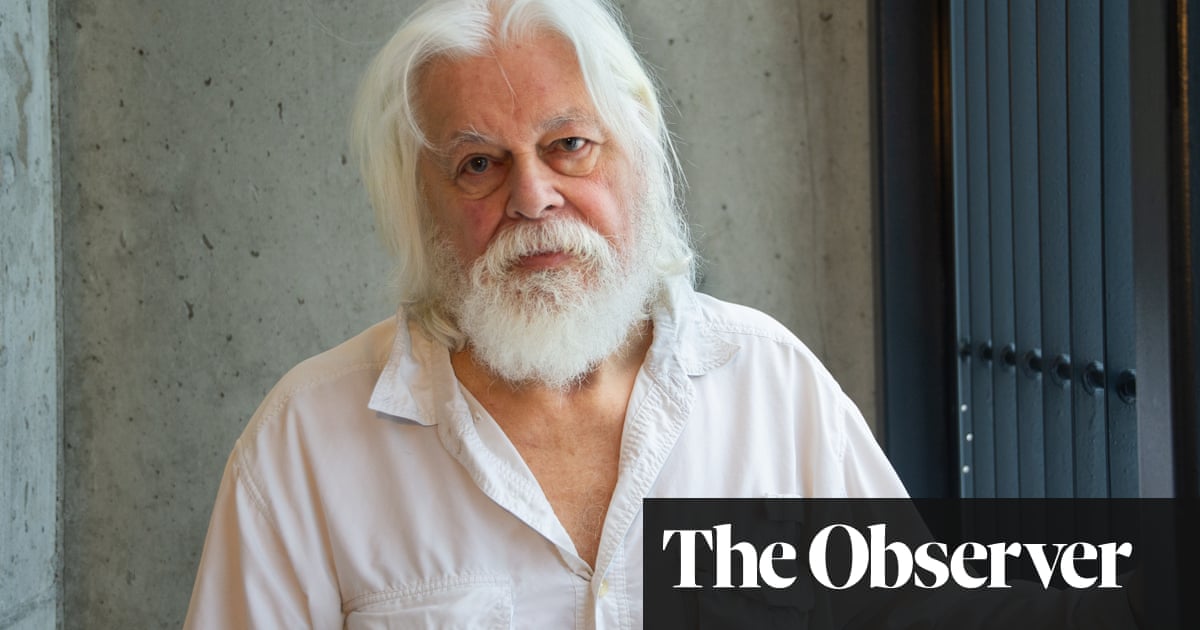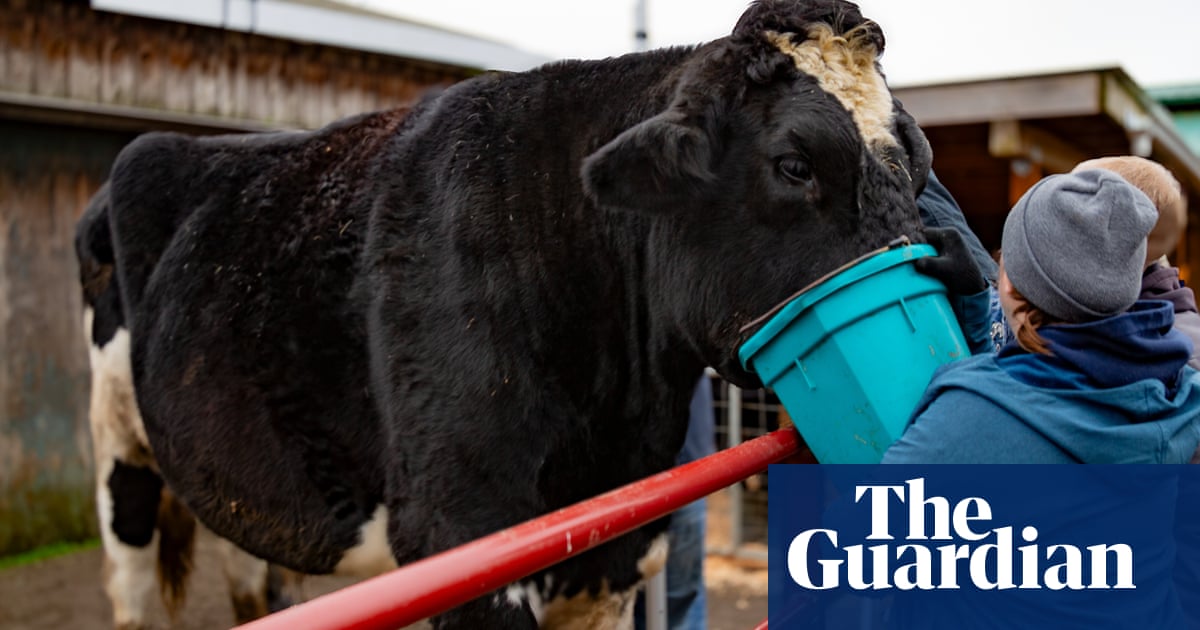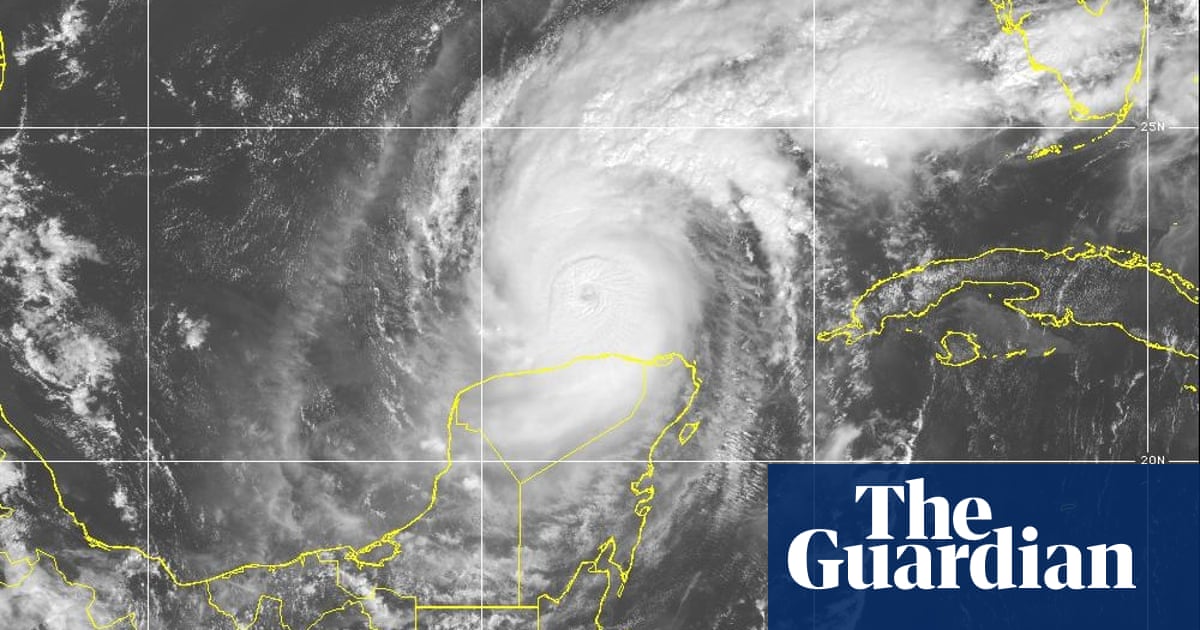The humpback whales watched by Paul Watson from his prison cell this summer have long since migrated from the iceberg-flecked Nuup Kangerlua fjord to warmer seas. It is over four months since Watson â an eco-terrorist to some and a brave environmentalist to others â was brought here to Anstalten, a high-security jail perched on the frozen coast of south-east Greenland after being arrested while refuelling his ship, MV John Paul DeJoria, in nearby Nuuk, the capital of the autonomous Danish territory.
He had been on his way with a 32-strong crew to practise his decades-long policy of ânon-violent aggressionâ by intercepting a new Japanese whaling âmothershipâ, the Â¥7.5bn ($47.4m) Kangei Maru. But shortly after tying up his vessel in the harbour âa nice police car turned upâ and 12 armed officers boarded.
It was to prove the opening of just the latest, but perhaps the most dramatic, chapter yet in the story of Watsonâs running battles on the high seas with the whalers of Japan. The Japanese government initially used a âresearchâ loophole to circumvent a 1986 International Whaling Commission moratorium on hunts in international waters, and then withdrew from the IWC entirely in order to continue commercial hunting within its own exclusive economic zone. Now, it is said to retain a desire to expand again.
âI was sitting in the captainâs chair at the time, and one of them just walked up, grabbed me by the shirt, pulled me off the chair and turned me around and handcuffed me,â Watson says of his arrest in Nuuk harbour. âAnd I said: âWhatâs this for?â And they said: âYouâll find outâ and took me down to the police station. They werenât a very friendly bunch.â
The arrest on 21 July had been prompted by an Interpol red notice issued by Japan whose government accuses Watson of conspiracy to trespass, interrupt a business and cause damage to the Shonan Maru 2 whaling ship in 2010 in the Antarctic â but also, crucially, to lightly injure a Japanese crew member via the mild acid from a stink bomb.
He was not at the scene of the alleged crime and denies playing any commanding role in it, but on Monday Watson is expecting to mark his 74th birthday by being told by a judge that his detention in Greenland will be extended by at least another month as the Ministry of Justice in Copenhagen continues to weigh up a Japanese demand for his extradition on charges that could see him jailed for up to 15 years. And so Watson, a grandfather, and father of two young children, finds himself here, long after the whales have left, talking from a spare cell that is acting as a visitorsâ room.
Anstalten was opened in 2021 by the Greenland government as a âhumaneâ alternative to sending the territoryâs most serious criminals 1,800 miles south-east to Denmark. He has the benefit of a 12-square-metre room, an en suite bathroom and a spectacular view of the fjords. The inmates are given 1,350 Danish kroner (£150) every Wednesday to buy food in the prison shop, which they cook in a communal kitchen. He has eggs in the morning, skips lunch, and eats noodles and vegetables in the evening. On one occasion, the prison guards knocked on his door to offer him some freshly caught cod. âThey do sell whale and seal in the store,â he says. âAt one point, [an inmate] said: âYou want to eat some whale with us?â I said: âWhat do you think?ââ
It is, he admits, an âinteresting prisonâ. Convicts here have a right to go hunting with loaded weapons. Watson would also like to give the impression that he is sanguine about his predicament; that this is a burden that he knew he might have to bear as the price for his activism. He talks quickly and lucidly. He has a series of stock answers and anecdotes that help convey his message: his campaign continues from here.
But it is when talking about his youngest children, aged three and eight, that he gives more away. He admits that his 44-year-old daughter from the first of his four marriages did not see him much during her childhood. But she is doing well and he made different choices about his life with his sons, Tiger and Murtagh. On their birth he had elected not to take long trips away, but today he has just 10 minutes a week on a Sunday evening for a video call home. âI donât feel upset, so they donât feel upset,â he says. âI mean, I know what itâs like. My mother died when I was 13. My father was extremely abusive. So I didnât really have that kind of, you know, happy childhood in that way. But that made me committed to making sure that my children are taken care of in every sense.â His wife, Yana, 43, worries. âShe tends to be a little more emotional than most,â he says with a dry laugh. âSheâs OK. She does get a little dramatic sometimesâ.
Watson, a joint US-Canadian citizen, was born in Toronto but grew up in St Andrews, New Brunswick. His response to physical abuse from his father was to throw himself into the Kindness Club, an animal welfare organisation founded by Aida Flemming, the wife of New Brunswick premier Hugh John Flemming. It was a temporary fix. âI ran away from home when I was 14, 15, 16, and finally, permanently, I ran off to sea. I joined the Norwegian Merchant Marine,â he says.
after newsletter promotion
Watson does not describe himself as a protester. He regards himself as an enforcer of international treaties on whaling and animal welfare. He proudly states that his work has never hurt anyone but it has involved him putting his body in the way of harm. His crews would be asked whether they were willing to lose their life to save that of a whale. âAnd if they said no, then I said: âWell, then we donât need you.ââ
It has also involved the scuttling of whaling boats in the past. This robust approach saw him leave Greenpeace, where he was one of the pioneers, and later to clash again with colleagues at the Sea Shepherd organisation he founded when others wanted to take a less controversial path. It also earned him the admiration of a plethora of celebrities and in 2009 the ultimate tribute for the notorious: a South Park parody that played on his Father Christmas-like appearance.
Famous names who have called for Watsonâs release in recent weeks include the actors Brigitte Bardot and Pierce Brosnan, the film-maker James Cameron and businessman Richard Branson. Brazilâs president Lula da Silva has written to him in jail. Watson lives in Paris and Marseille, and the Ãlysée Palace has said publicly that Emmanuel Macron wants him home. Yet Watson, dressed entirely in white, emphasising the pallor of a man unexposed to sunlight, remains incarcerated.
His left hand, his writing hand, gives him some discomfort after he was handcuffed and put in a police car without a seat belt. It is healing well enough for him to be writing a childrenâs book entitled Spaceship Earth, about its passengers killing off the key engineers, but he is trapped. He says he regards Japanâs extradition efforts as revenge for his often successful attempts to thwart the whalers, a battle that was chronicled in Whale Wars, a hit show on the Animal Planet channel in the late 2000s.
He does not believe that he would survive a spell in a Japanese prison. âI know that if I get sent to Japan, Iâm not coming home,â he says. And so Watson waits, and hopes and keeps calm for his family. âYou canât be frustrated over something you canât control,â he says. âYou know, whatâs the point? And Iâve never been angry at anything. Whatâs the point of being angry?â But, in his eighth decade, there would be no shame in Captain Paul Watson being just a little scared.



